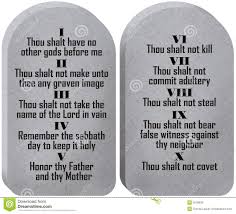
-3-11-2024-
Thirty First Sunday in Ordinary Time
Gospel: Mark 12:28-34
vs.28 One of the scribes came up to Jesus and put a question to him,
“Which is the first of all the commandments?“
 vs.29 Jesus replied,
vs.29 Jesus replied,
“This is the first:
Listen, Israel, the Lord our God is the one Lord,
vs.30 and you must love the Lord your God with all your heart, with all your soul, with all your mind and with all your strength.
vs.31 The second is this:
You must love your neighbour as yourself.
There is no commandment greater than these.”
vs.32 The scribe said to him,
“Well spoken, Master; what you have said is true:
that he is one and there is no other.
vs.33 To love him with all your heart, with all your understanding and strength, and to love your neighbour as yourself, this is far more important than any holocaust or sacrifice.”
vs.34 Jesus, seeing how wisely he had spoken, said,
“You are not far from the kingdom of God.”
And after that no one dared to question him any more.
*******************************************
This Sunday we have two commentators available whom you may wish to read
Michel DeVerteuil : A Holy Ghost Priest and formar director of the Centre of Biblical renewal .Trinidad W.I.
Donal Neary SJ: Editor of The Sacred Heart Messenger and National Director of The Apostlship of Prayer.
****************************************
Michel DeVerteuil
Lectio Divina with the Sunday Gospels
www.messenger.ie/bookshop.
Textual Comments
This Sunday’s passage consists mainly of abstract teaching, but the context is a story, and it would be good to enter into it. You can read it simply as a story of Jesus the teacher, and notice how he enters into a real dialogue with the scribe:
– verse 28, the scribe initiates the dialogue with a question;
– verses 29 to 31, Jesus answers the question with a clear but paradoxical answer, since the “first” commandment turns out to be two;
– verses 32 and 33, the scribe takes up the dialogue by accepting the teaching of Jesus, but adds his own interpretation;
– verse 34, Jesus continues the dialogue by complimenting the scribe, and then invites him to go further, since he is still not at “the kingdom” although he is “not far“.
As you go through the verses you can focus on the scribe – evidently a humble person who grows in confidence through the dialogue – or on Jesus, the model of one who can walk with another into the truth.
You might prefer to concentrate on the content of the teaching in the passage, .
At one level there is the “First Commandment,” greater than any other, and in particular greater than any “holocaust or sacrifice“, which you can interpret either as ritual sacrifices or as the sacrifices involved in daily living. Remember the actual journey that you (or others) have made from putting other commandments higher that “the first“ to when Jesus brought you back to a correct hierarchy of values.
At a second level, there is the paradox which I mentioned earlier of a “first commandment” which turns out to be two, although within the two (which are really one) there is an inner hierarchy. Don’t leave this teaching abstract, but situate it in the context of a journey which leads there.
Finally, you might like to focus on the teaching on loving one’s neighbour as oneself. Don’t take it for granted that you have accepted it. Explore the meaning of “as oneself“; let it shock and disturb you until you perceive as if for the first time that you had settled for a particular understanding of the concept of loving your neighbour, and see how these words modify it.
Scriptural Prayer Reflection
Lord, there was a time when we felt confused,
pulled in different directions. as we tried to satisfy all our obligations.
We thank you that you always send us teachers like Jesus who bring us back to basics.
They make us experience that loving you with all our hearts, with all our understanding and strength, and to love our neighbour as ourselves is far more important than any holocaust or sacrifice.
At that moment we know that we are on the right road to the Kingdom and we don’t feel the need to ask any further questions.
Lord, we serve you in our private lives, in church and in our prayer,
in our families, and within our circle of friends.
But in the world of business, politics and international relations we often follow other gods.
Send us teachers like Jesus to remind us that you are one Lord,
that you are one and there is no other God,
and that in every area of life we must love our neighbour as ourselves.
 Lord, it is fairly easy to help our neighbours,
Lord, it is fairly easy to help our neighbours,
to give things that are left over and/or
that we no longer need,
even to putting ourselves to some trouble so that
they may have something to eat and clothes to wear.
But your commandment calls us to go further and to love our neighbour as ourselves,
to experience that we need them as they need us,
that when we forgive them it is our own sins that we forgive, and when we pity them it is because we ourselves need pity.
An Aboriginal Australian once said to a missionary:
“If you have come to help me, you are wasting your time. But it you have come because your liberation is bound up with mine, then let us work together.”
Lord, we thank you for your commandment, ‘You must love your neighbour as yourself.’
Lord, we pray that your Church may enter into dialogue
with the learned people, the scribes, of our modern world, not arrogantly, but
like Jesus, answering clearly the questions they put to us,
so that we can feel that we have spoken well and that what we have said is true,
and so that listening to them in turn we too may discover how wisely they speak and how they are not far from the kingdom;
then there will be no more of that constant questioning of one another.
Lord, there are often very wise people in our communities
who are shy to come forward, like the scribe in the gospel story.
They prefer to listen to others debating and to observe how well the teacher is answering before they will come up and put their own questions.
We thank you for teachers like Jesus
who can respond to them and help them express in their own way
their understanding of the commandments,
and so find that they are on the right road to the kingdom.
*************************************
Donal Neary SJ
Gospel Reflections for Sundays of Year B
www.messenger.ie/bookshop.
What is Religious?
We often ask people what is most important to them in life. Various words come to mind – family, faith, love, and peace of mind, money or others. Jesus is asked something like this in the conversation of today’s gospel. His most important word is love – anything in the religious tradition of the time is secondary to love of God and love of the neighbour.
In August 2012 a survey indicated that the Irish are among the least religious people of Europe. This came out of a sample of 1,000 people and indicates something to do with religious understanding and practice. Maybe though we could challenge that we are most religious, not necessarily when we are in church or praying, but also when we are at our most loving and caring, or concerned for justice.
 True religion is that, and is especially true when it cares for the needy. Jesus’ heart went out mostly to people like that in his own time, especially any group who were outcast like people suffering from leprosy.
True religion is that, and is especially true when it cares for the needy. Jesus’ heart went out mostly to people like that in his own time, especially any group who were outcast like people suffering from leprosy.
This can be the same today. He is the one on the side of the needy, and most on our side when we are most needy. This is the meaning and the reason for the Christian community – to be bearers of love in our world. We are all being called to share our treasures, values, environments and even new discoveries like vacines with those who need them as much or even more than we do.
So maybe in Ireland we are much more religious than the survey shows! When we love, in the smallest and biggest ways, among the family, neighbourhood and wider world, then we are religious in the name of Jesus.
Recall moments when you thought you were most ‘religious’ and
soon after were internally critical of other’s efforts.
Lord, may I find your love in everything I encounter this week.
********************